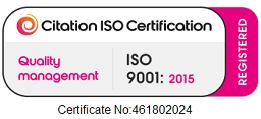
Sustainables
The Earths' health is important for all life forms and thankfully, increasingly important to legislators. We need to use more renewable, sustainable resources to stop damage to the planet's inhabitants and eco systems. Formulators take note of these trends. There's been many debates around the terms renewable, sustainable and biodegradable. Sustainable materials are typically derived from renewable components eg crop oils or perhaps in the future from recycled/re-refined materials. Whereas biodegradable components have to degrade biochemically as classified by standard tests eg modified Sturm / OECD 301B. However, sustainable components might not be biodegradable.
Boedal understands the changing dynamics for lubricants producers and wants to help. So for several years Boedal R&D activities has focused on understanding molecular structures and their influence on oxidation and especially, load carrying properties. We all know that to make a satisfactory lubricant we need to add additives to mineral oils. Why ? Because mineral oils aren't particularly good lubricants. We particularly like working with esters as they offer design flexibility and usually possess inherently good HS&E properties. So we started investigating the oxidation properties of esters and common oils, additive free and then blended with 4 common anti-oxidants to look at additive response. We used the dry TOST and RPVOT tests for evaluation. The anti-oxidants used were BHT (ref), Irganox 1010, L107 and Topanol CA. Then we moved onto load carrying properties. Many companies conduct 4-ball tests to screen anti-wear/EP performance, but we wanted a procedure that provided a clearer ranking of performance and that produced useful data to formulators. After evaluating many test methods, we decided to use the FZG test. But would it be too tough to rank additive free fluids ? We needn't have worried.
We conducted tests at the Technical University of Munch (TUM), a key developer of the widely used test protocol A/8.3/90. At TUM we evaluated additive free mineral oils (Groups I, II, III), PAO's, PAG's, mono- di- and tri-esters, polyols, estolides, natural oils, blown and stand oils etc. We also ran some blends - investigating the influence of viscosity on performance, plus other studies looking the effect of thick components dissolved in thin oils. These data, coupled with related oxidation studies have provided a unique understanding of molecular structure effects, identified trends and solved the question, when does viscosity become important for gears ? We pass our data to customers. We learn together. Our ultimate aim is to design new sustainable molecules with inherently good load carrying properties so that formulators don't need to add anti-wear and EP additives. Sounds crazy, and maybe a step too far, but we've now two fluids that failed load stage 12 - additive free.




